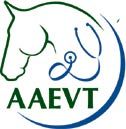6 ways to sell your boss on CE (sponsored by Intervet/Schering-Plough Animal Health)
Be prepared to show how your education benefits your equine practice's bottom line.
In this economy, equine practice owners are cutting expenses any way they can. It's unfortunate, though, that CE is often the first on the chopping block, says Deborah Reeder, RVT, executive director and former president of the American Association of Equine Veterinary Technicians (AAEVT). "If your team is the most educated and well-trained in the area, it separates you from the practice down the street," she says. Equine technicians and assistants can make a great case for their own education as long as they accentuate the benefits to the practice. Reeder suggests keeping these points in mind:
1. Do your homework. As a technician or assistant, you might be hesitant to ask for money to attend CE. Don't be. Reeder has created a sample letter template and expense worksheet that you can customize and present to your supervisor, detailing both the costs—and benefits—of attending profit-centered CE. Download these tools at dvm360.com/AAEVTletter .

2. Select the right CE. Identify events that help you fulfill your state's specific licensing requirements. These requirements vary greatly from state to state. Look for CE that's RACE-approved, relevant, convenient, and valuable to the practice. The best educational events give you ideas for generating revenue—for example, finding new income centers, controlling inventory, or slimming down on unnecessary expenses.
3. Go local. To save money, try to find CE that requires little or no travel. If travel is necessary, use the worksheet described in point No. 1 to outline the costs for your boss—you don't want any surprises. If your boss still hesitates, Reeder suggests that you show you're willing to meet him or her halfway. "Tell your boss you'll share a room with another person, take a late-night flight, or ride the bus in," she says. "It's up to your boss to tell you what the practice can afford, but be prepared to pay a little out of pocket."
4. Show the benefit to the practice. Tell your boss you'll share your new knowledge with the rest of the practice team. Offer to bring back a copy of the proceedings and pass it around to your colleagues. Take notes so you'll be prepared to share the tips you learned or give a presentation or two on specific topics. Tell your boss that you'll create an "action report" in which you'll outline how you'll implement something you learned at the meeting.
5. Cover your schedule. If you need to travel and be away from the practice during working hours, ask others to cover for you and create a schedule to show your boss that practice production won't be affected. You could also offer to use vacation or personal days.
6. Don't forget to say "thank you." It seems like the boss should be the one to thank you for your hard work learning and bringing value back to the business. However, money is scarce in many practices right now, and CE is an expense. So be polite and tell your employer you appreciate his or her willingness to expand the practice's knowledge. Plus, be sure to make these CE opportunities work for the practice's bottom line—that's the biggest thank-you of all. It will be much easier for management to OK a trip in the future if what you did in the past has already paid for itself.
To learn more about the AAEVT and its online courses and regional meetings (which include discussions, lectures, and wet labs on medicine, practice management, and life balance skills), visit aaevt.org . In addition, Intervet Schering-Plough Animal Health (ISPAH) and the AAEVT sponsor a special educational series just for you: the Equine Veterinary Technician Educational Initiative Series. Contact your local ISPAH field representative for more information.